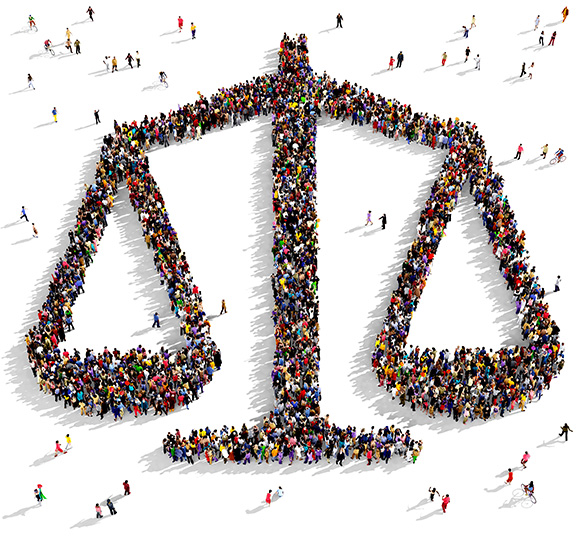What Is an I-601 Waiver, and When is it Required?
Some foreign nationals may be deemed inadmissible under INA 212(a), which covers bases including unlawful presence, criminal violations, and immigration fraud or misrepresentation. If a foreign national is considered inadmissible, then he or she must obtain a waiver of inadmissibility if they are seeking lawful permanent resident status. Generally, in order to successfully obtain an I-601 waiver, you must prove “extreme hardship” to a qualifying relative is moved to the applicant’s country, and that the qualifying relative can’t remain in the US without the applicant. These hardships are also weighed against “mitigating and aggravating factors.”
Extreme hardship is vaguely defined as “greater than the normal hardship” that you would expect the relative to have if the applicant is not given a visa. “Normal hardships” such as the separation anxiety, missed income, and difficulty for the qualifying relative to move to the applicant’s home country due to cultural differences, will not be enough to garner an approval on an I-601 waiver. One of the most typical factors supporting an argument of extreme hardship include the qualifying relative’s medical/physical condition which wouldn’t be properly managed if the applicant were away and if the relative had to move to the applicant’s home country. Financial hardship is also a potential factor, but it must be framed so that it is clear that the qualifying relative’s loss is relating to missing basic needs rather than merely missing out on a lifestyle improvement. Depression and compromising mental health is also a potential factor, but generally, if the qualifying relative has no history of depression to show that they are especially sensitive, this would be a weak factor. There are a number of other potential factors relevant to extreme hardship, such as any unusual country conditions in the applicant’s home country making it difficult for the qualifying relative to live in the US, or certain obstacles in life which the qualifying relative can not overcome without the applicant gaining his or her immigrant visa.
Even if extreme hardships are established, if the mitigating and aggravating factors impact whether the I-601 waiver may be denied as a matter of discretion. Mitigating factors include duration of the relationship between the applicant and qualifying relative, whether small children are involved, whether the applicant has applied for the waiver voluntarily, and the degree of the applicant’s culpability. Strong mitigating factors will lower the burden to establish extreme hardship. Aggravating factors include prior criminal record (regardless of basis of inadmissibility), multiple immigration violations, multiple marriages, absconding from deportation, and whether the qualifying relative immigrated to the US as an adult from the same country as the waiver applicant. Aggravating factors will increase the level of hardship that the applicant would have to establish. It is important to highlight the mitigating factors and address the aggravating factors in any I-601 waiver application.
How Long Does it Take to Process an I-601 Waiver?
Processing times vary depending on the consulate. In general, it takes 4-6 months, but in some cases it may take well over a year to process. For those applying at the USCIS Ciudad Juarez Office (also known as CDJ) under the pilot program for I-601 waivers, the waiver should be adjudicated within a day or two, however if the I-601 is not approved and referred for future and file review and adjudication, the processing time may end up being over a year.
Are there Risks to Entering the Waiver Process?
For those who entered the US without inspection, it is not possible to file the waiver in the US, meaning that the applicant would have to leave the United States, to file. If the odds are not very high for the waiver to be approved, it may be better to simply continue residing in the US without being detected. The individual will have to weigh the problems associated with being undocumented (living in fear of potential detection, inability to get a drivers license, employment exploitation, etc) versus the risks of voluntarily entering the waiver process. Each person’s motivations are different, and each person’s likelihood of success in obtaining a waiver is different. Anyone considering the I-601 waiver process should make a well informed decision.
What is the Attorney’s Role in I-601 Waivers?
In cases where the foreign national is living in the US undetected, the most important first step is to assess whether an I-601 waiver is worth pursuing. A qualified immigration attorney will be able to make a reasonable assessment based on the individual’s unique circumstances. The attorney will work with the client to determine which arguments are strongest, and what kind of documentation the client may provide to support eligibility for a waiver of inadmissibility. If necessary, the attorney will perform background research including reports on applicant’s home country conditions. The attorney will ensure the quality of documentation, in particular, the affidavit of hardship made by the qualifying relative. The attorney will also draft a brief, if necessary, to organize the arguments and evidence so as to present a clear and convincing case that the application is worthy of approval. The officer who will review the application package will have to make a decision on the waiver in short order; therefore, a well-organized, professionally fashioned waiver application can make the difference between approval and denial.
Contact Us
To discuss I-601 immigrant visa waivers with an experienced immigration lawyer from the Shah Peerally Law Group PC, feel free to contact us by email or call us at 510-742-5887.
Fees:
Click the following link for our fee schedule — > Attorney Fees
I-601 Waiver Testimonial
“I came to USA in 2007 with my two kids. My husbands visa was denied, and was told to apply for I-601 Application for Waiver of Ground of Inadmissibility , based on a crime. I didn’t know what to do and where to go for help. I read an advertisement of Mr. Shah in one of the news paper. I contact I-601 Waiver Lawyer Mr. Shah and he help me with my husbands wavier case. Being new in this country and meeting a person (lawyer) like Mr. Shah helped me a lot. Their was hope that my husband will be here soon. The wavier case was very important to me because my family was separated. I thank Mr. Shah, Meera and Sony for being there for us. They were always there to assist me. Whenever we had questions and concerns. We would not have been able to undertake this or deal without his help and presence. I am very happy with the result, specially my children. they are looking forward to meet their father. Thank you Mr. Shah for helping my family and understanding our financial situation. Apart from your outstanding work, you are a very good person.
-Urmila P. “
Click the following link for more testimonials — > Testimonials
Download our FREE Apps for Updates on your mobile.

